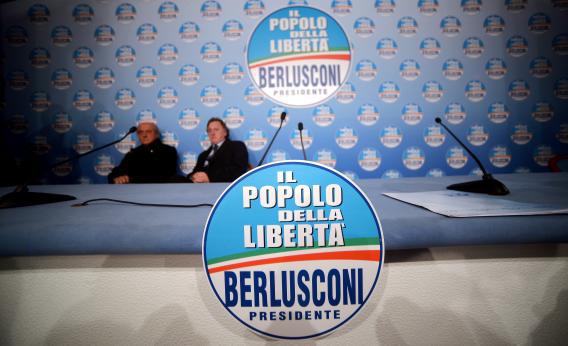If you really want a deep understanding of Italian politics, go somewhere else. But if you’re moderately curious why it is that Italian politics is dominated by Silvio Berlusconi, on the one hand, and a rotating series of former members of the Italian Communist Party (that includes current center-left leader Pier Luigi Bersani, President Giorgio Napolitano, and many other key figures in anti-Berlusconi politics) then the short explanation is that it all goes back to the unusual strength of Italian Communism in the immediate postwar decades.
Postwar Italian politics had the basic structure of Christian Democrats on the right, anti-Soviet socialists or social Democrats on the left, and the kind of pro-Soviet Communists on the far left that are familiar to other European countries. Except the Communists were much more popular than in most countries, and got enough votes that center-left parties could never actually beat the Christian Democrats in elections. Consequently, even though Italy had a reputation for famously unstable governments, the Cabinet-level instability was undergirded by an extraordinary level of stasis. Basically the Christian Democrats were always running the show in a shifting series of alliances with other parties, including the Socialist Party. This system had two pro-corruption elements. One, the political establishment was deeply entrenched since losing a national election to the Communists was never really on the table. Second, politics was very transactional rather than ideological—the game wasn’t about articulating a vision to the electorate, it was about cutting deals with different faction leaders and minor parties to get ahead.
Over time the Italian Communists’ relative electoral strength made them much more of a real political party than the typical pro-Soviet Communist party, and eventually they broke with the Soviet Union and by the ‘70s and ‘80s were the leading lights of the “eurocommunist” tendency. Then the Soviet Union fell apart, leading to further Communist re-organization, and then in 1994 the mani pulite investigations exposed massive corruption on the part of the establishment parties.
That utterly discredited both the Christian Democrats and the socialists, leaving a huge void in the main ideological spaces of continental European politics. Into the void rushed Silvio Berlusconi to play the role of conservative, along with the various ex-Communist figures who now lead the Democratic Party of Italy, with both of the main coalitions encompassing a minority liberal tendency.
